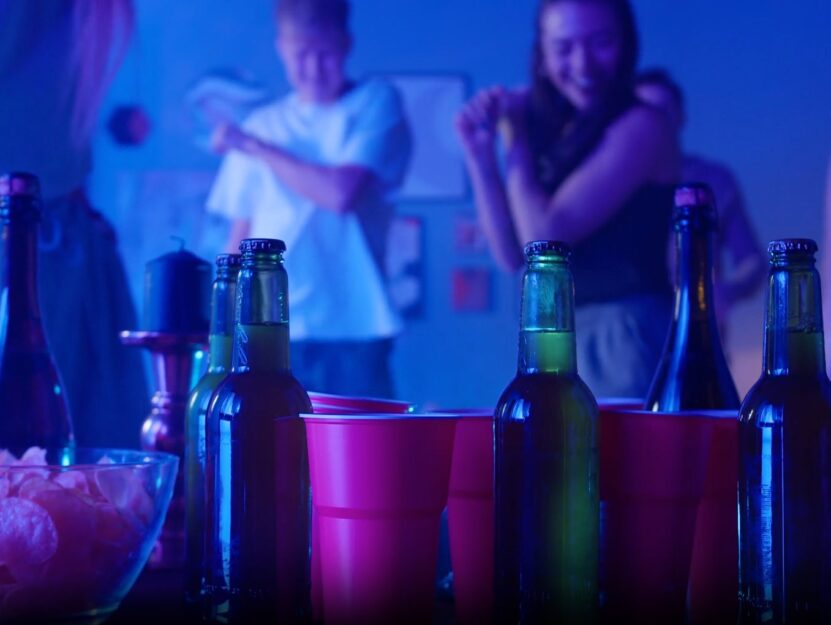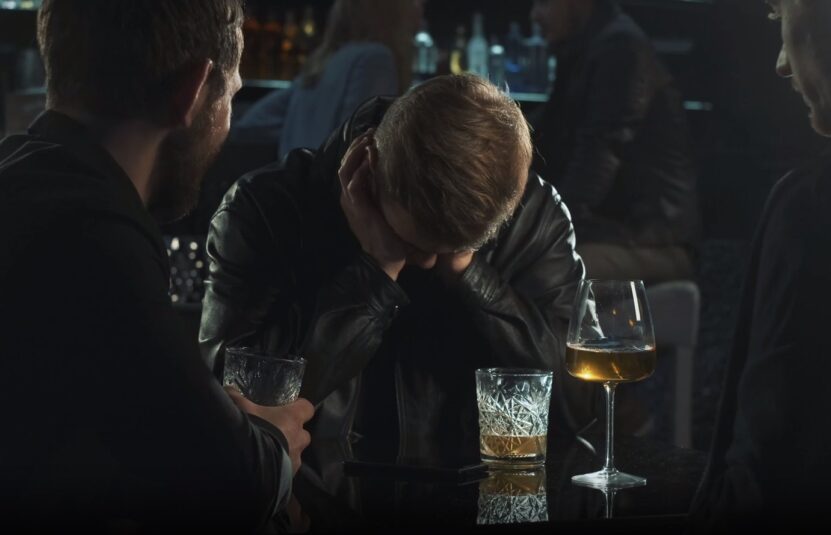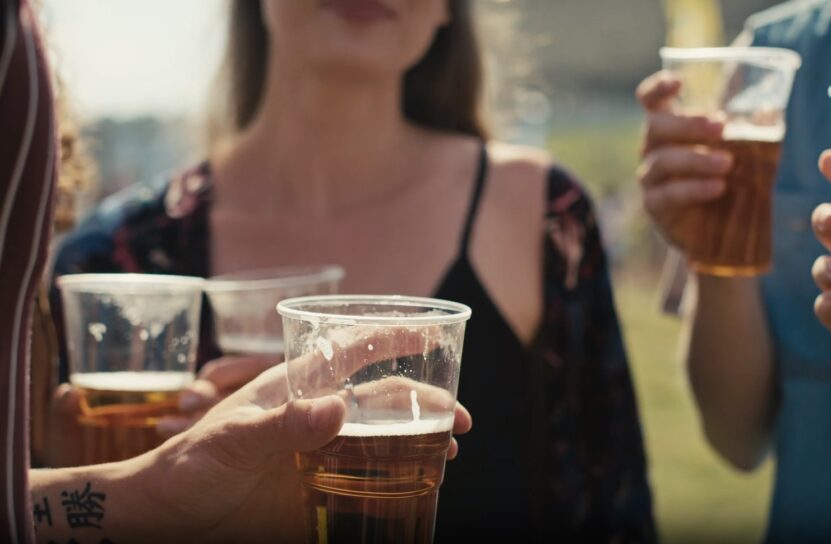An age-old debate that has sparked countless discussions at parties, family gatherings, and even during those late-night philosophical chats with friends: the difference between being tipsy and being downright drunk.
We’ve all been there, haven’t we? One moment you’re sipping your drink, feeling the world is a brighter place, and the next, you’re wondering why the room is spinning. Understanding the distinction between these two states is not just about avoiding embarrassing moments, but it’s also crucial for our safety and well-being.
Tipsy vs Drunk

Tipsy
You’ve just had a drink or two, and there’s a light buzz in your head. The world seems a bit more vibrant, and you’re probably more talkative and cheerful. This is the tipsy stage.
There’s no official definition for “tipsy”, but it’s that pleasant stage where everything feels just right. You remember everything you do, and you still have control over your speech and actions.
- Blood Alcohol Level for Tipsy: This varies from person to person, but it’s generally below the legal limit.
- Symptoms and Behaviors: Elevated mood, slight relaxation, and a sense of warmth.
Drunk
Now, this is a whole different ball game. When you’re drunk, you might not remember your actions. It’s like a blackout.
The alcohol level in your blood spikes, leading to a loss of control over speech, actions, and even emotions. Some might become sad, some angry, and some might just do things they’d never imagine doing sober.
- Blood Alcohol Level for Drunk: This is typically above the legal limit, but again, it varies based on individual tolerance.
- Symptoms and Behaviors: Slurred speech, impaired coordination, emotional outbursts, and memory blackouts.
Factors Influencing Alcohol Effects

Alcohol doesn’t affect everyone the same way. Ever wondered why your friend can down five drinks and still be on their feet, while you’re tipsy after just two? Here’s why:
- Individual Tolerance and Metabolism: Some people can metabolize alcohol faster than others. It’s like a superpower, but not one everyone has.
- Gender Differences: Women generally metabolize alcohol differently than men. It’s not about who’s stronger; it’s just biology.
- Mixing with Other Substances: Mixing alcohol with medications or other drugs can amplify its effects. It’s like adding fuel to fire.
- Time and Rate of Consumption: Downing three shots in a row? That’s a one-way ticket to Drunkville. Sipping a drink over an hour? Welcome to Tipsy Town.
Recognizing Tipsy Behavior
The tipsy stage. It’s that delightful phase where you’re feeling a bit more confident, perhaps a tad more talkative, and everything seems just a smidge brighter. But how do you know you’re tipsy and not crossing into the drunk territory?
- Slurred Speech and Impaired Coordination: While you might think you’re the life of the party, your slightly slurred words and that tiny stumble as you strut your stuff on the dance floor might suggest otherwise.
- Euphoria and Talkativeness: Feeling on top of the world? Can’t stop chatting about that hilarious cat video you watched last week? Yep, you’re probably tipsy.
- Social Behaviors: You might find yourself being the ultimate social butterfly, flitting from one conversation to the next, laughing a little louder and hugging just a tad longer.
- BAC Range for Being Tipsy: Typically, the Blood Alcohol Content (BAC) when you’re tipsy ranges between 0.03 and 0.12 percent. Fun fact: Did you know that how quickly you feel tipsy can depend on factors like your age, gender, and even if you’ve eaten beforehand?
Identifying Drunk Behavior

Now, let’s talk about the big D – Drunk. It’s the stage where things can get a bit… messy.
- Incoherent Speech and Poor Coordination: If you’re finding it hard to string a sentence together or you’ve taken a tumble (or three), you’ve probably ventured into drunk territory.
- Aggressiveness or Depression: Alcohol can amplify emotions. So, if you’re suddenly feeling like the Hulk or on the verge of tears, it might be time to put down that drink.
- Risky Behaviors: From attempting that risky dance move to thinking you’re invincible, being drunk can lead to some questionable decisions.
- BAC Range for Being Drunk: A BAC of 0.18 to 0.30 percent is typically considered being drunk. Pro tip: It’s always better to have a designated driver or an alternate way home if you plan on drinking.
Legal and Health Implications
Alright, let’s get serious for a moment. While enjoying a drink or two can be fun, there are some serious implications to consider.
- DUI Consequences: Whether you’re tipsy or drunk, driving under the influence is a big no-no. It’s not just about the legal consequences; it’s about keeping yourself and others safe.
- Health Risks of Heavy Drinking: From liver damage to increased risk of certain cancers, heavy drinking can have severe health implications.
- Short-term vs. Long-term Effects: While a hangover might be your immediate concern after a night of heavy drinking, it’s essential to be aware of the long-term effects of alcohol on your body and mind.
Responsible Drinking

We’ve all heard the phrase “Drink Responsibly,” but what does it truly mean? Let’s break it down:
- Knowing Your Limits: Everyone has that one friend who claims they “know their limits” and then ends up dancing on the table. Don’t be that friend. Listen to your body and know when to say no.
- Strategies for Staying in Control: Alternate between alcoholic and non-alcoholic drinks. This not only keeps you hydrated but also helps pace your alcohol consumption. Fun fact: Did you know that sipping water can help reduce the chances of a hangover?
- Encouraging Friends to Make Responsible Choices: If you see a friend going overboard, be the hero. Offer them water, food, or even just a break from the dance floor. Remember, friends don’t let friends make drunken mistakes.
Tipsy vs. Drunk: Real-Life Scenarios
- The Karaoke Bar: Tipsy you might belt out a decent rendition of “Bohemian Rhapsody.” Drunk you might think you’re Freddie Mercury reincarnated and refuse to leave the stage.
- The Texting Game: Tipsy you might send a flirty text. Drunk you might declare your undying love to your ex, your crush, and your pizza delivery guy.
- The Morning After: Tipsy you wakes up feeling refreshed with a clear memory of last night’s fun. Drunk you wakes up with a pounding headache, a mysterious bruise, and a vague sense of regret.
In all these scenarios, it’s essential to recognize the signs and know how to react and help someone, or even yourself, navigate the situation.

FAQ
Why do some people seem to get tipsy or drunk faster on an empty stomach?
Consuming alcohol on an empty stomach can accelerate its absorption into the bloodstream. Without food to slow down the digestive process, alcohol moves quickly into the small intestine, where it’s absorbed faster than in the stomach. This rapid absorption can lead to a quicker and more intense feeling of intoxication.
Are there any foods or drinks that can help sober up a person faster?
While many believe that coffee or a cold shower can sober someone up, the truth is that only time can effectively reduce blood alcohol concentration. However, drinking water and consuming foods rich in protein and carbohydrates can help alleviate some symptoms of intoxication by hydrating the body and stabilizing blood sugar levels.
How does age affect one’s tolerance to alcohol?
As people age, their body’s ability to metabolize alcohol can decrease. This means that older individuals might feel the effects of alcohol more quickly and intensely than when they were younger. Additionally, the body’s water content decreases with age, leading to higher blood alcohol concentrations.
Can regular consumption of alcohol increase one’s tolerance?
Yes, regular and heavy consumption can lead to increased alcohol tolerance. This means that over time, a person might need to consume more alcohol to achieve the same effects. However, it’s essential to note that an increased tolerance doesn’t reduce the risk of long-term health issues associated with heavy drinking.
Conclusion
Navigating the world of alcohol can be a fun adventure, but it’s crucial to remember the difference between being tipsy and being drunk. It’s not just about avoiding embarrassing moments or hangovers; it’s about ensuring our safety and the safety of those around us.
So, the next time you raise a glass, do it with knowledge, awareness, and a commitment to enjoying the moment responsibly. Cheers to good times, great memories, and always having a funny story to tell (without the regret)! 🥂🍾

